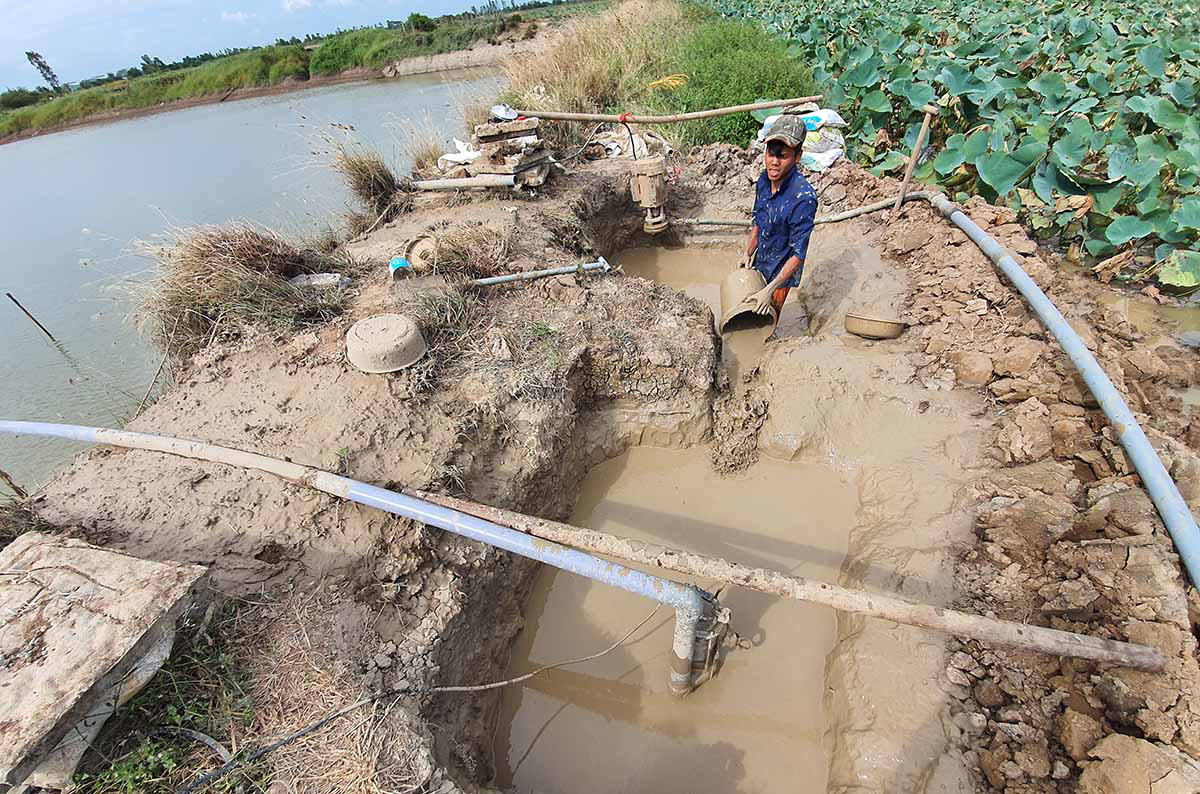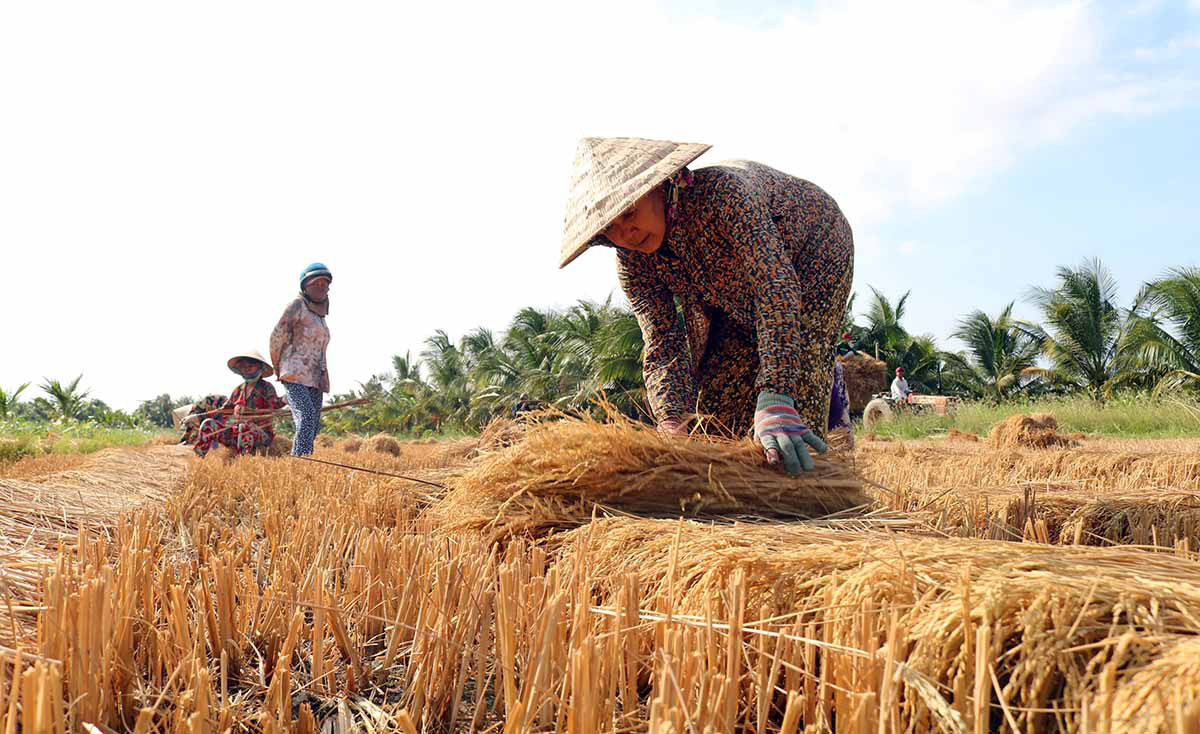Five provinces in Vietnam’s Mekong Delta have declared a state of emergency after drought and saline intrusion broke records in the region.
As of Wednesday, authorities in Kien Giang, Ben Tre, Tien Giang, Ca Mau, and Long An Provinces have declared the state of emergency after extreme weather conditions had immensely impacted local residents’ lives and production.
In 2016, drought and saltwater intrusion in the country’s ‘rice basket’ – a nickname for the Mekong Delta – were deemed the most serious in a century.
However, all previous records have been broken in this year’s dry season.
Local residents and authorities were prepared for the weather phenomenon as they had been every year, but they were apparently caught off guard by the unusually early onset of saline incursion this year.
Ben Tre has been suffering the heaviest toll since mid-January and was the first province in the Mekong Delta to announce a state of emergency.
About 5,000 hectares of rice paddies in the province are expected to be completely ruined, while approximately 20,000 hectares of fruit trees will also be affected.

Water scarcity is another headache in Ben Tre, as local residents now have to buy freshwater for up to VND300,000 (US$13) per cubic meter for daily use.
“If this problem persists, my family may have to spend tens of millions of Vietnamese dong [VND10 million = $430] on freshwater by the end of the dry season, which we cannot afford,” Nguyen Van Hau, a local farmer, said.
In other provinces such as Soc Trang, where authorities have yet to declare a state of emergency, drought and saltwater intrusion have also posed a lot of challenges.
“Saltwater intrusion has never been this extreme. I have suffered losses of about VND15 million [$646] so far,” said Nguyen Thanh Liem, a rice farmer.
According to Pham Tan Dao, manager of the provincial Branch of Irrigation, about 2,500 hectares of rice paddies in Soc Trang have been impacted.
Authorities in the affected provinces have taken certain mitigation measures, such as regularly monitoring the salinity in local rivers, dredging and renovating canals, and providing residents with necessary tools for freshwater storage.
Like us on Facebook or follow us on Twitter to get the latest news about Vietnam!



















































